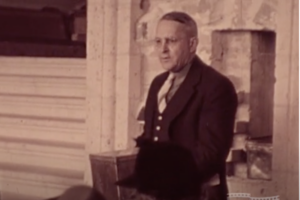If you have ever ridden a crowded subway or bus at rush hour, you have likely noticed that when strangers encounter each other, they briefly exchange eye contact before looking away. In densely shared spaces, choosing to look away is neither rude nor unusual. Rather, such looking away respects people’s need for space and anonymity in public. Erving Goffman, a prominent sociologist, referred to such behavior as civil inattention.
These days, people do a lot of important things online. Certainly, unimportant things can happen when we get sucked into the Internet’s vortex. But the Internet is the place where we stay connected with friends and family who often live far away. It is where we find romantic partners. Where we get support in times of crisis. Where we share our expertise. The Internet is where we grow up and try on new identities. Where we advocate for particular political parties and platforms. And perhaps, it is where we find a place to finally belong. In other words, the Internet does more than help us get ahead in our careers. For most of us, what we do online affects many and perhaps all aspects of our lives.
So what happens if most of us or enough of us focus our digital energies on maintaining our ideal work persona online? What if most of us take the common career advice to manage each piece of online information as if future employers might see it? We may lose more than we will gain.
Certainly there could be short-term gain for early masters of online professionalism. But if more and more people brand and polish their online personas to meet these new expectations, such information will no longer give promised access to “the real person.” What then? Employers will still expect us to keep up with our professional personas online. It will become the new normal. Yet it will cost us in terms of the other life goals we pursue online goals that are not just about work.
Although employers may have good reasons for looking online, like people sharing a crowded subway, they should choose to look away in order to respect people’s online lives. Let’s find alternate ways to fulfill our organizational obligations without exploiting the information made visible by growing up, learning, engaging, debating and connecting online.
Choosing to look away is not new to business contexts. This is one of the things professional standards and ethics are about: Even though we are able to do something, we choose not to do it. Or we choose to do it in a different way that serves the greater good. Take insider trading for example. Insider trading happens when people use access to confidential or nonpublic information to trade a company’s stock to their advantage. Many countries prohibit insider trading because it is considered unfair. Insider trading shows how we establish rules for what information we collect, and whether and how we can use that information. It shows that even when we have the privilege of knowing something, we may choose not to use it for our own gain because of a higher standard.
Such looking away is not always legislated. For example, when human resource personnel in the United States receive an application with a personal photo on it, they often remove the photo or discard the application. They do so because even though the applicant made the information available, removing the information helps human resource personnel avoid the chance of unintended bias by the managers and others reviewing résumés.
So let us be intentional in where we look and where we don’t look. Let us not allow our organizational need to identify red flags to undermine people’s online lives. Let us find ways to fulfill our organizational due diligence while also respecting that people including ourselves have lives outside of work.
Brenda Berkelaar is an assistant professor in communication studies at The University of Texas at Austin. Her expertise is in the ways technology affects work, careers and personnel selection.



